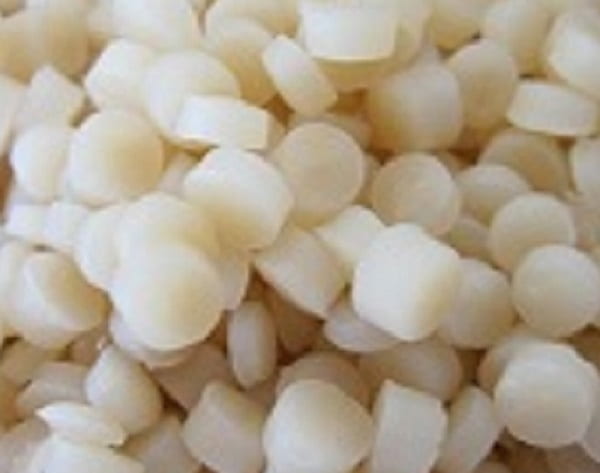Bioplastic-bottles – Recycled Polyester 17-04-2023 - Arhive
Bioplastic-bottles – Recycled Polyester
Petrochemicals – Recycled Polyester
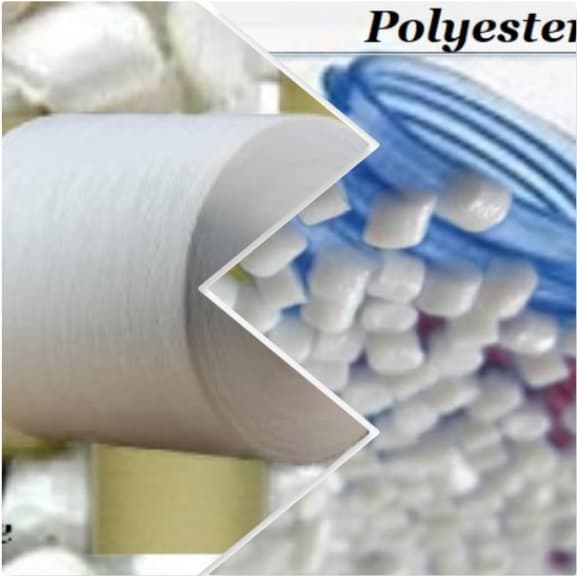
Crude Oil Prices Trend
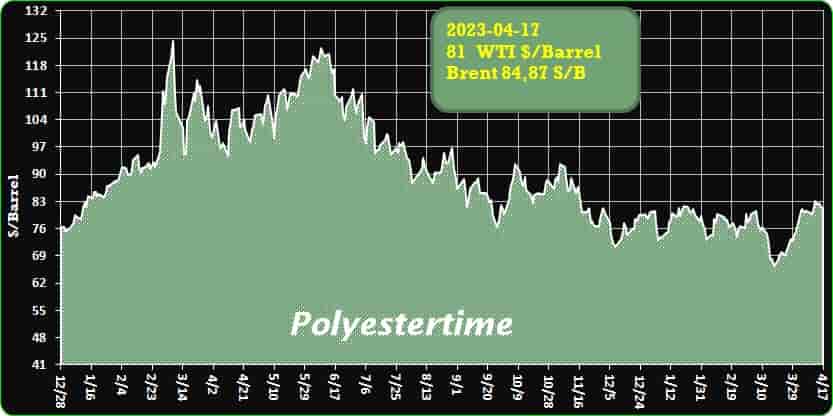
Crude Oil Prices Trend by Polyestertime
-Innovation and Sustainability are the keywords of RadiciGroup at Chinaplas 2023
The Group solutions for the e-mobility and the solar industries, booming sectors in China
RadiciGroup, with its Specialty Chemicals and High Performance Polymers business areas, is taking part in Chinaplas (stand 17 A101), a trade fair dedicated to the plastics and rubber sector which, after a one-year break, will reopen its doors from 17 to 20 April at the Shenzhen World Exhibition & Convention Center.
The Chinese market is strategic for the Group, both for the expectations of strong business growth in the Asian area and for the possibility of developing innovative solutions to be made available on the global market. Bioplastic-bottles – Recycled Polyester
«China leads the way in terms of e-mobility – comments Erico Spini, Global Marketing Director of RadiciGroup High Performance Polymers – Thanks to the collaboration with our local customers, we have expanded the range with products particularly suitable for this sector: in particular I refer to flame retardant materials that are usually used for applications that require high mechanical resistance over time, such as frames and battery housings, IGBT supports, bus bar, housings for electronic components and high voltage connectors. We have also collaborated in the development of wireless charging systems, making available our expertise in the selection and design of polyamide-based polymers. Furthermore – adds Spini – we are also working in China on some innovative solutions for the electromagnetic shielding of electric car components, we are testing solutions that we hope to be able to industrialize soon, with a view to making the know-how available to the whole Group acquired”.
In China, too, “innovation” is therefore the keyword for entering new markets and applications, together with “sustainability”: in this direction, RadiciGroup already has consolidated experience in the use of products with recycled content, now known throughout the world with the Renycle® brand.
In addition to this, we already have a range of partially bio-based materials available under the PA610-based Radilon® D brand. Bioplastic-bottles – Recycled Polyester
These materials, in addition to offering excellent technical performance (high chemical resistance, high dimensional stability thanks to lower water absorption, excellent hydrolysis resistance compared to PA6 and PA66), represent an optimal solution for reducing the environmental impact thanks to the use of material from renewable sources.
Sustainability is the framework in which the Specialty Chemicals business area also works, with a series of proposals ranging from the production of chemical intermediates starting from vegetable raw materials to polymers deriving partially or totally from bio sources.
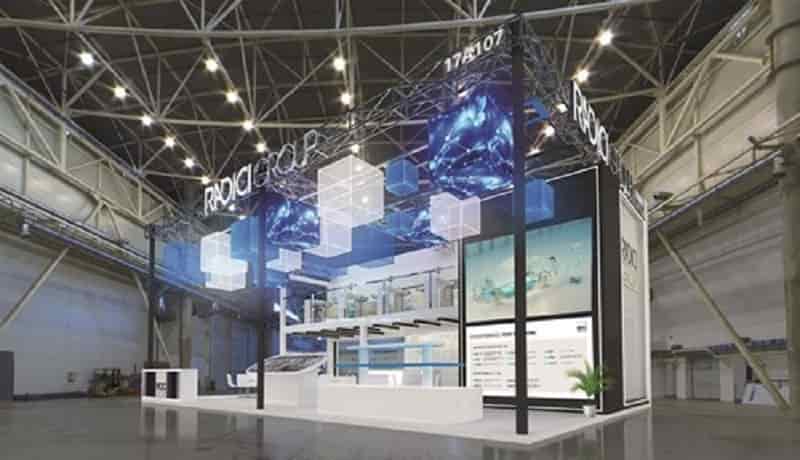
-Russia and China violated the US-Saudi oil agreement
Relations between the Saudis and the Americans deteriorated, and China and Russia took advantage of this. The OPEC+ cuts in oil production are a consequence of this, and new shocks may follow. Here’s what happens
The oil cooperation between Russia and Saudi Arabia, the partner of reference for the United States in the Middle East, poses a danger to the American economy and also to the political fate of President Joe Biden, who intends to run again in the 2024 elections. bloombergAnd the recent decision of OPEC+ (a group of oil exporting countries led by Riyadh and Moscow) to cut crude oil production by 1.6 million barrels per day may be “just the beginning.” It is reasonable to expect new shocks, that is, because the “oil for security” agreement concluded between the Americans and the Saudis in 1945 seems to have collapsed. Bioplastic-bottles – Recycled Polyester
The impact of cuts on the oil market
The announcement of the cuts had the effect of pushing oil prices up by $5 a barrel. Exacerbation of market “tightness”—that is, the delicate balance between supply and demand levels—may increase inflation and the risk of a recession: consumers will spend more money on energy, and have to save on less important goods and services. At the same time, the Kremlin could see its revenue grow and use it to finance the invasion of Ukraine.
Geological calculations and material needs
In addition to the value of crude oil, cooperation between Saudi Arabia and Russia is important because it represents a shift in geopolitical alliances: Riyadh is moving away from Washington’s orbit to coordinate with Moscow on oil; And it relies on Beijing, the great American adversary, to facilitate relations with Iran, the historic regional adversary. As a result, the West’s ability to influence OPEC+ decisions “is at its lowest point in decades,” he writes bloomberg.
Besides geopolitical calculations, there are also purely economic reasons behind the cuts. Russia under Vladimir Putin needs higher oil prices, around $100 a barrel, to support its budget and pay for the war against Ukraine. On the other hand, Saudi Arabia under the leadership of Mohammed bin Salman is exploiting oil revenues to finance its multi-billion dollar plans for economic transformation: it needs prices per barrel of between $75 and $80 to support public spending. Bioplastic-bottles – Recycled Polyester
The situation in the United States
The United States is the world’s largest oil producer, but its economy is free and unplanned: the government cannot therefore order producers to adjust production in a particular direction. As a result, the White House could not count on the help of domestic industry oily Rock (This is the name of unconventional American oil extracted from shale rocks) to compensate for OPEC + cuts and supply barrels to the international market. American corporations have other goals to achieve, as they must respond to shareholders’ demands for financial discipline and high profits.
An increase in crude oil prices could also encourage some new drilling, but the shale sector is looking more to the near future than to the present: the green transition already promises to drastically reduce fossil fuel consumption, preventing oil companies from offsetting the costs incurred today to increase extraction capacity. However, higher oil prices and market volatility can accelerate rather than slow the transition to clean energy.
Some analysts – writes bloomberg – Expect oil prices to average above $80 per barrel over the next few years, which is much higher than the average oil price of $58 for the period 2015-2021. Bioplastic-bottles – Recycled Polyester
Who wins (OPEC +) and who loses (Europe)
For the global economy, an oil shortage and price hike is a very negative scenario. Exporting countries will benefit, but importing countries – like most European countries – may experience lower levels of growth and higher levels of inflation.
On the one hand, the United States finds itself in an intermediate position: they are large producers and exporters, but the increase in fuel prices threatens the purchasing power of the population. According to accounts bloombergFor every $5 increase in the price of oil, the US inflation rate rises by 0.2 percentage point.
Is the American-Arab pact on the verge of collapse?
Deal oil for security A rift between the United States and Saudi Arabia began in 2018, with the murder of dissident Saudi journalist Jamal Khashoggi (he worked for the American newspaper). Washington Post) at the Saudi Consulate in Istanbul.
In 2019, Biden — who has not yet been elected president but is already determined to craft a foreign policy to promote democracy — said he wanted to make Riyadh a pariah state isolated from other countries. Bioplastic-bottles – Recycled Polyester
In 2021, as soon as he assumed his position in the White House, he issued an intelligence report accusing Saudi Crown Prince Mohammed bin Salman of being responsible for the murder of Khashoggi.

-StoreDot’s Smaller Fast-Charging Battery Packs May Increase EV Adoption
The company’s silicon-dominant EV batteries could be a game-changer if they work as advertised.
We hear about EV battery breakthroughs often, though it seems the tech never actually comes to market for widespread use. However, StoreDot’s extreme fast charging (XFC) battery tech seems promising, and it’s currently being tested by at least 15 automakers. Now, the battery maker says its silicon-dominant batteries may make extreme fast-charging EVs “accessible to all.” Bioplastic-bottles – Recycled Polyester
StoreDot’s upcoming silicon-dominant batteries are being designed to be cheaper, lighter, and more sustainable. The company says it will begin producing them at scale soon, and the goal is to enable the use of smaller battery packs that are capable of being charged extremely quickly. In the end, StoreDot hopes the breakthrough will be the answer to making electric cars more accessible to the masses.
Batteries are expensive and in short supply. Sadly, an EV with a decent amount of range needs a ton of battery cells, which requires a larger battery pack. A large pack means the EV actually needs the space to house it, and the car is going to be quite heavy, carrying around a bunch of extra battery cells it may only use every so often, on long road trips. However, if an EV charges super quickly, it may not need as much range, so smaller battery packs could suffice. StoreDot CEO Dr. Doron Myersdorf shared:
“The two remaining barriers to EV ownership are charging anxiety and cost, and StoreDot’s XFC solution was designed to assist with both. Radically reduced charging times will allow automotive manufacturers to rethink how they approach battery size and range. When charging times are no longer an issue, it makes a lot more sense to fit smaller battery packs.” Bioplastic-bottles – Recycled Polyester

-Ampacet Introduces SeaGlass™ Collection – Visual Enhancements for PET
The new SeaGlass™ Collection from global masterbatch leader Ampacet captures the look and feel of the naturally weathered shards of discarded glass polished by the ocean and prized by beachcombers around the world.
“Our new SeaGlass Collection reinforces our ethos of finding beauty in waste,” says Mercedes Landázuri, Ampacet Market Insight Manager. “The color palette showcases the luminous colors found in these treasures from the sea.”
These unique effects for PET enhance the shelf appeal of packaging and products without a mold change. As with other colored PET packaging, products made with SeaGlass can find a second life recycled into textile fibers. Bioplastic-bottles – Recycled Polyester
For example, 50 2-liter bottles can create one square yard of carpet fiber with fewer emissions than using virgin plastics.
The SeaGlass Collection’s carefully curated palette includes the softened blush of Quiet Coral, the highly prized color found in Rarified Red, the beauty of Pitted Lime, and one of the rarest colors of beach glass, Tumbled Teal.
For more information on the SeaGlass Collection PET masterbatch, contact an Ampacet representative.
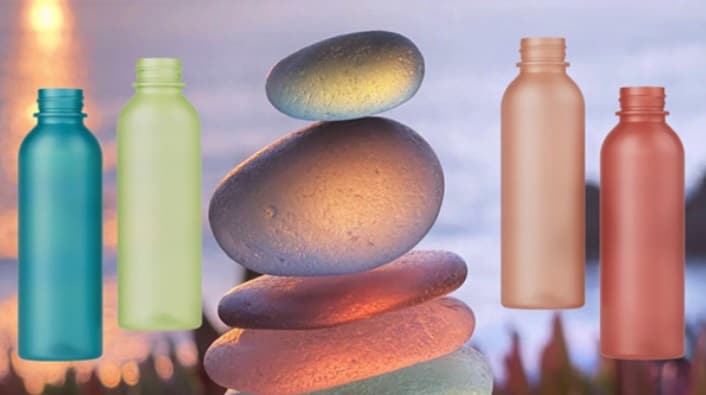
-California debates 15% goal for bioplastic beverage bottles
As President Joe Biden’s administration floats its plan to speed up the development of bioplastics, lawmakers in California are jumping in, saying they want to create state incentives to use more plant-based plastics in beverage bottles.
The state Assembly is considering a bill that would provide modest incentives to companies using plant-based plastics, as well as set a non-binding goal that plastic beverage bottles need to be made with 15 percent bio-based materials by 2030.
It’s that voluntary 15 percent goal that’s drawing concerns from some lawmakers and beverage companies, who fear it could become a mandate, following a 2020 law that California passed requiring recycled plastic in bottles. Bioplastic-bottles – Recycled Polyester
“A lot of these things start out as goals but it does appear there is a desire to move that beyond just a goal in the future,” said Assemblymember Josh Hoover, R-Folsom, in an April 10 committee hearing. “That is certainly a red flag for me.”
However, supporters of the bioplastic bill, including sponsor Assemblymember Jacqui Irwin, D-Thousand Oaks, said the legislation only calls for the biomaterial content as a goal, not a requirement.
Irwin was one of the lead authors of the 2020 recycled content mandate, known as Assembly Bill 793, and spent several years pushing it in the Assembly before it finally passed.
That law, which is among the strictest in the world, requires 50 percent recycled plastic use by 2030, ramping up from 15 percent now.
She framed the bioplastic measure as the next step.
“While those changes secured by AB-793 are a momentous step in the right direction, we must continue to reduce the carbon emissions that fossil fuel-based plastics create,” Irwin said. Bioplastic-bottles – Recycled Polyester
“As we move toward a fully circular economy, many manufacturing processes still need virgin materials. That is what the bill focuses on.”
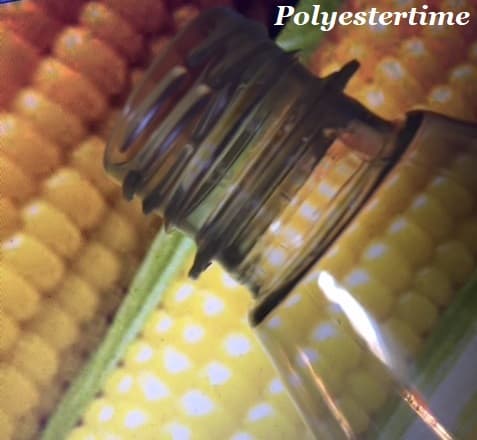
-Versalis to acquire 100% of shares in biopolymer producer Novamont
Eni SpA’s chemical subsidiary Versalis is in exclusive negotiations to finalise the acquisition of Italian bioplastics manufacturer Novamont.
Versalis currently holds a 36% stake in the bioplastics manufacturer, and is now seeking to acquire the remaining 64% of the shares in the company from Mater-Bi. Mater-Bi is controlled by the private equity funds NB Renaissance, Investitori Associati and other private investors.
Financial details have not been disclosed.
Founded in Novara in 1989, Novamont is a leading player in the bioplastics sector and in the development of biochemicals. Comprising four production sites, four research centres, sales offices in Germany, France, Spain and the United States, and a representative office in Brussels, Belgium, Novamont currently boasts a portfolio of around 1,800 patents and patent applications. Bioplastic-bottles – Recycled Polyester
In 2021, the company acquired BioBag International, a leading global group in the development, production and marketing of certified biodegradable and compostable applications, headquartered in Askim (Norway), with a production plant in Dagö (Estonia) and a presence in 9 other countries worldwide. Novamont is a certified B Corp.
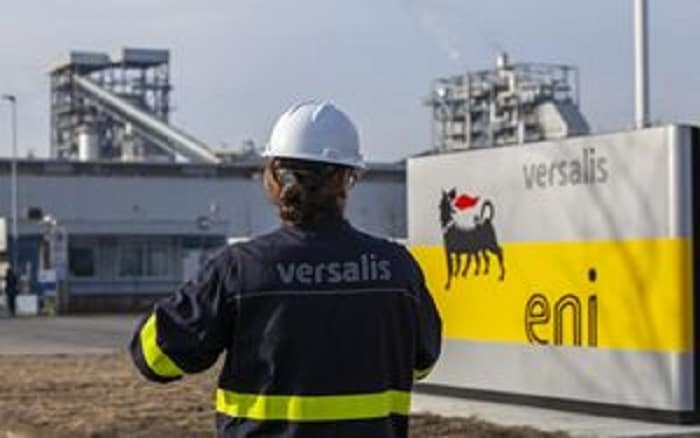
-Chemists redesign biological PHAs, ‘dream’ biodegradable plastics
They’ve been called ‘dream’ plastics: polyhydroxyalkanoates, or PHAs. Already the basis of a fledgling industry, they’re a class of polymers naturally created by living microorganisms, or synthetically produced from biorenewable feedstocks. They’re biodegradable in the ambient environment, including oceans and soil. Bioplastic-bottles – Recycled Polyester
They’ve been called “dream” plastics: polyhydroxyalkanoates, or PHAs. Already the basis of a fledgling industry, they’re a class of polymers naturally created by living microorganisms, or synthetically produced from biorenewable feedstocks. They’re biodegradable in the ambient environment, including oceans and soil.
But there’s a reason PHAs haven’t taken off as a sustainable, environmentally benign alternative to traditional plastics. Crystalline PHAs are brittle, so not as durable and convenient as conventional plastics. They cannot easily be melt-processed and recycled, making them expensive to produce.
Colorado State University polymer chemists led by Eugene Chen, University Distinguished Professor in the Department of Chemistry, have created a synthetic PHA platform that addresses each of these problems, paving the way for a future in which PHAs can take off in the marketplace as truly sustainable plastics.
Chen and colleagues report a new class of redesigned PHAs, readily accessible via chemical catalysis, in the journal Science. Bioplastic-bottles – Recycled Polyester
The researchers had been searching for a strategy to address the intrinsic thermal instability of conventional PHAs; their lack of heat resistance also makes it difficult to melt-process them into end products. The CSU chemists made fundamental changes to the structures of these plastics, substituting reactive hydrogen atoms responsible for thermal degradation with more robust methyl groups. This structural modification drastically enhances the PHAs’ thermal stability, resulting in plastics that can be melt-processed without decomposition.
What’s more, these newly designed PHAs are mechanically tough, even outperforming the two most common commodity plastics: high-density polyethylene — used in products like milk and shampoo bottles — and isotactic propylene, which is used to make automotive parts and synthetic fibers. The best part is that the new PHA can be chemically recycled back to its building-block molecule, called a monomer, with a simple catalyst and heat, and the recovered clean monomer can be reused to reproduce the same PHA again – in principle, infinitely. Bioplastic-bottles – Recycled Polyester
